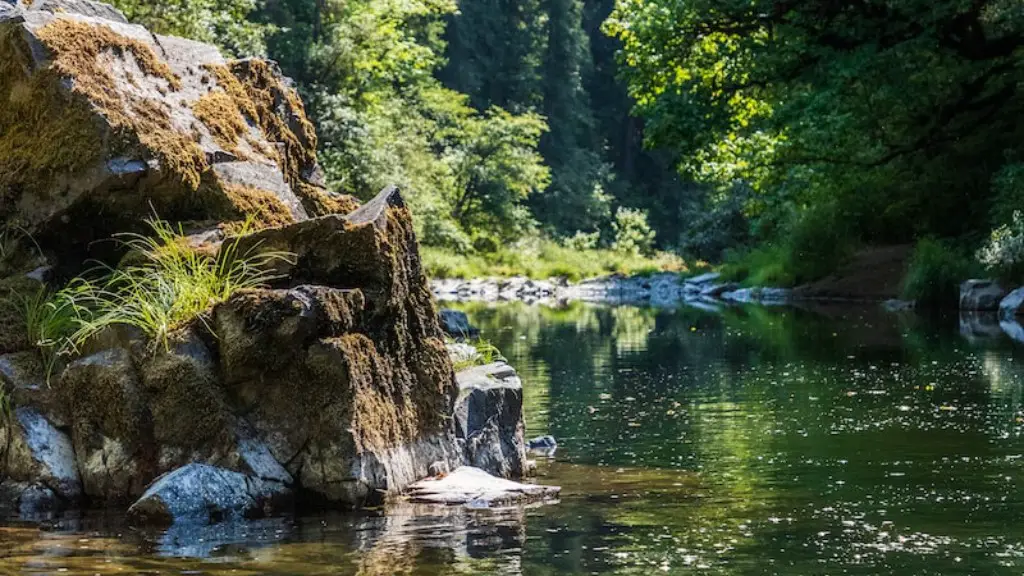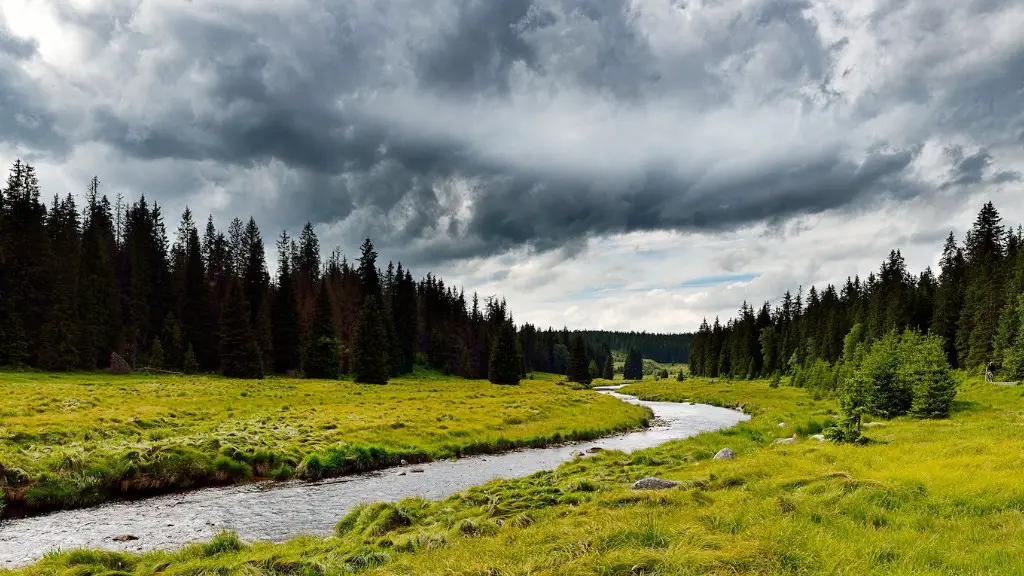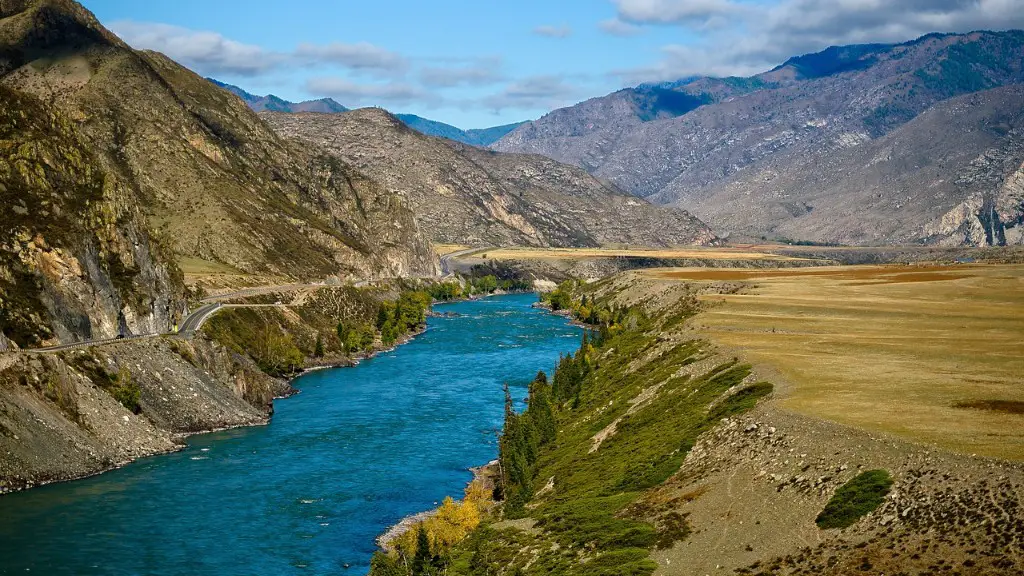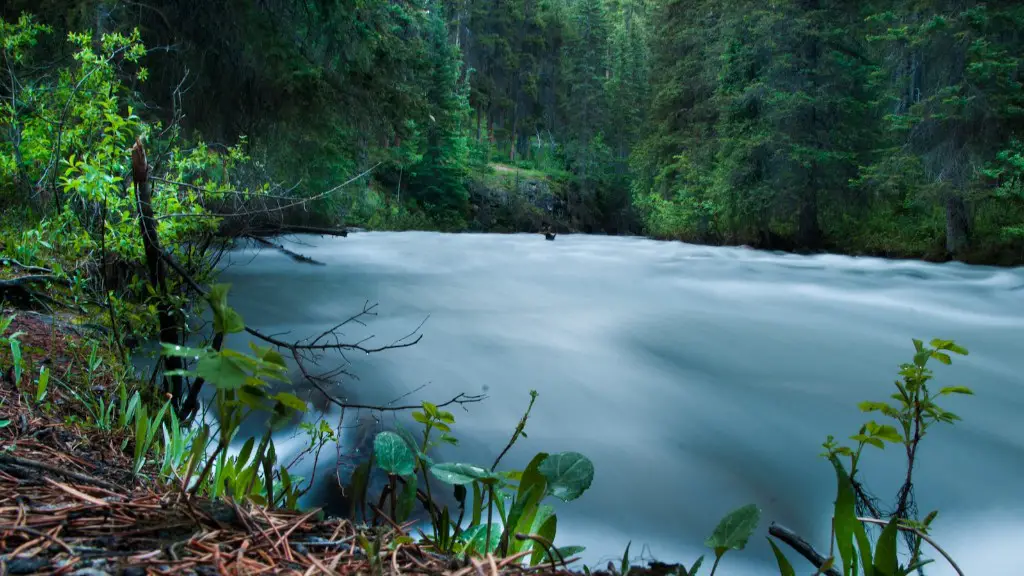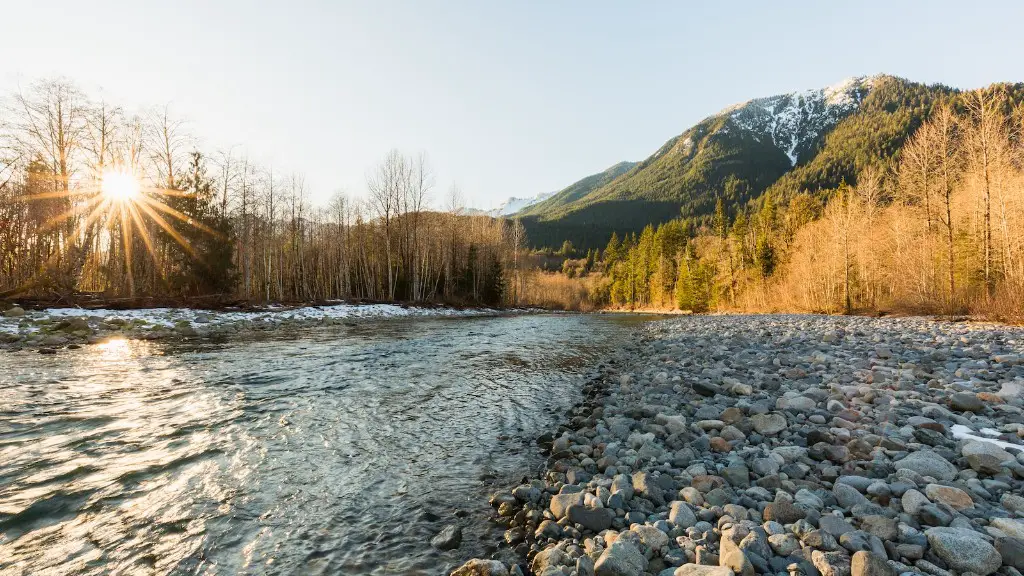Mississippi river, one of the most important rivers in North America, is a popular source of drinking water for a large part of the United States. The state of Louisiana alone draws over 6 million acre-feet of water from the river each year for drinking, irrigation and other purposes. An impressive statistic, however, hides the question on everyone’s mind – does drinking water actually come from Mississippi river?
The answer to this question is rather complex, as it ultimately depends on where the individual consuming the water is located. If a person lives in certain parts of Louisiana, the chances are high that the water they are drinking is from the Mississippi River. It has been estimated that over 40 percent of Louisiana’s drinking water is sourced from this river.
Beyond Louisiana, the water may or may not come from the Mississippi depending on whether it is sourced from local reservoirs or rivers. In many parts of the US, aquifers provide drinking water, so the answer may be a big ‘No’ in these cases.
The reason it matters whether drinking water comes from the Mississippi River or not is that water sourced from the river is treated differently than other sources of water. Due to its potential exposure to many pollutants, river water requires much more extensive treatment than other sources of drinking water. Additionally, river water is more vulnerable to contamination from industry, sewage and agricultural runoff, so excess caution is required to ensure the safety of its drinking water.
The health effects of drinking water from the Mississippi River are also often disputed. While certain levels of pollutants can be found in its waters, the treatment plants are able to filter them out before the water is used for drinking. This means that, as long as the drinking water is treated correctly, there should be no health risks associated with it.
Understanding where drinking water comes from is important as it can help people make more informed decisions about their health. If people are drinking from the Mississippi River, they need to be aware that it is more likely to be exposed to pollutants and take necessary precautions. They should also ensure that their water is being treated adequately and that the supplies are regularly tested for any contaminants.
Impact of Climate Change
Climate change is another factor that is impacting the water sources of the Mississippi River. Warming temperatures and increased rainfall are both contributing to a reduction in the amount of water available from the Silver River. This can put strains on the local water supplies, as fewer resources are available at peak times. Additionally, rising temperatures create new issues with the river’s ecosystem, disrupting the growth and survival of important species such as amphibians, reptiles and fish.
The population of Louisiana has also been growing rapidly in recent years, putting additional strain on the state’s water supplies. With even less water available, it has become even more important to manage the resources that are available. As the state continues to grow, measures need to be taken to ensure that drinking water comes from the Mississippi River in a sustainable way.
Role of Government
In order to ensure that drinking water from the Mississippi River is safe and abundant, it is essential for government to adopt a more holistic and knowledgeable approach to resource management. This means understanding the complexities of the river’s hydrology and recognizing the vital role it plays in the state’s water supply. It also means creating policies that are focused on proper resource management and conservation.
The state of Louisiana has already taken steps to ensure that its drinking water is safe and plentiful. Through its Water Resources Plan, the state has outlined an approach to water management that takes into account the needs of the local population and the health of the river. Growth plans must also take into consideration the potential impacts of climate change and the need to adapt to protect the state’s water supply.
In addition, the state has declared many of the rivers and streams of the Mississippi as ‘Outstanding National Resource Waters’. This means that these areas are protected from any industrial or other impacting activities. The government is also taking steps to reduce pollutants and contaminants in the water, with an aim of reducing the risk of pollution to the rivers and its tributaries.
Environmental Protection
Along with government regulations and efforts, it is critical for individuals and industry to ensure that the environment is protected from contamination and pollution. This should include practices such as proper disposal of hazardous materials, reducing agricultural runoff, and ensuring that wastewater is treated before it is released into any bodies of water. These efforts will help to reduce the risk of pollutants and contaminants entering the Mississippi River and impacting its water supply.
It is also essential for individuals to take steps to conserve and protect their local water sources. This can include simple actions like reducing water usage at home and making the switch to reusable or biodegradable products to reduce the amount of waste that ends up in the Mississippi River. Additionally, individuals should support organizations and initiatives that are protecting their local waterways and advocating for stronger environmental regulations.
Human Cost
The Mississippi River is a vital resource for millions of people across the US. As water supplies become more strained due to climate change and population growth, it becomes increasingly important that we protect this resource. Unfortunately, some of the consequences of pollution and degradation of the river do not often reach the people who are most affected.
In many communities along the Mississippi, water contamination has become a serious public health issue. Even with the necessary treatments and filters, the water can become contaminated and cause adverse health effects such as skin irritations, eye infections and gastrointestinal disturbances. Furthermore, these communities often lack access to clean water, as many of them do not even have access to basic water filtration systems.
In order to ensure that drinking water from the Mississippi River is safe and available for everyone, solutions must be implemented that take into account the human cost of pollution and contamination. This could include providing greater access to water treatment methods, as well as improving the enforcement of environmental regulations. Along with government initiatives, it is essential for individuals to learn about the impacts of their behaviour on the environment and take steps to reduce their impact.
Educational Programs
One of the most effective strategies for protecting the Mississippi is educating people about their water sources and encouraging them to take action. Programs that educate the public about water safety, the importance of conservation and the effects of pollution can make a significant difference in how people interact with the river.
These types of programs have the potential to inspire individuals to become stewards of their local waterways and to advocate for stronger environmental protections. Such initiatives can also help to promote good water management and sustainable use of the Mississippi River’s resources.
There are many organizations working to protect the Mississippi River by providing programs that are focused on education and advocacy. These organizations are often made up of volunteers who are dedicated to making a positive difference in their local environment. They provide a valuable resource to those who are looking to learn more about their water sources and the importance of protecting them.
Ultimately, if drinking water from the Mississippi River is to remain safe and plentiful, it is essential that individuals and industry take steps to protect this vital resource. This includes understanding the complexities of the river’s hydrology, taking steps to reduce pollution, and supporting educational programs that are focused on environmental protection and water conservation. Only through the combined effort of individuals, industry and government can we ensure the long-term health of the Mississippi River and its water supplies.
